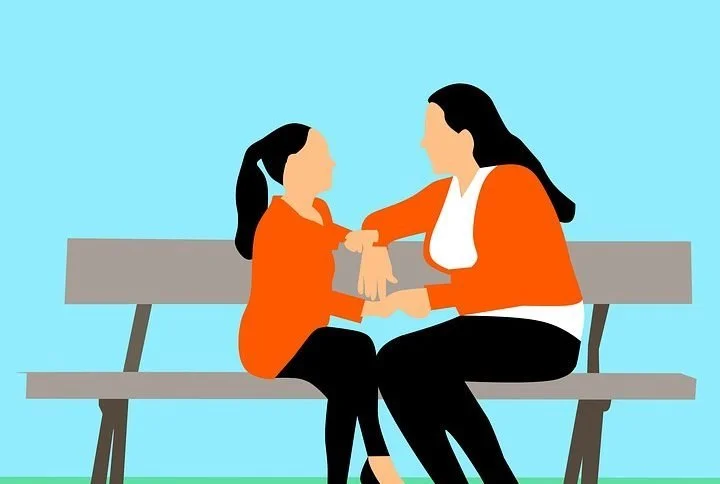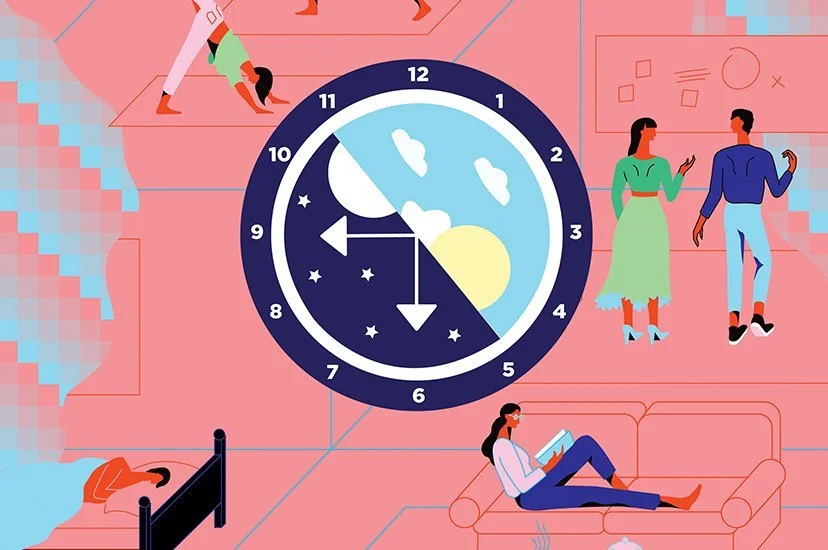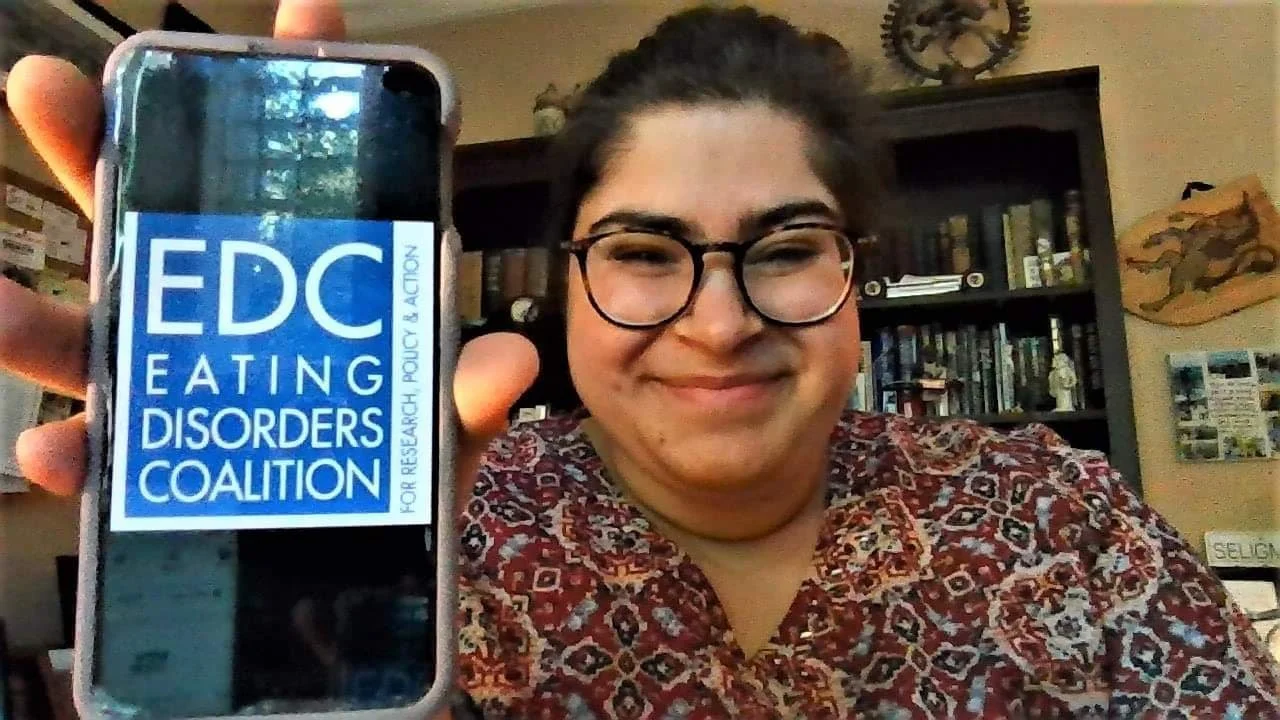Parents: Watch Out for These Disordered Eating Signs
Going back to school isn’t glamorous for many teenagers, especially as bodies and habits continue to change. As a part of our Homecoming to Your Body campaign Rock Recovery, a Project HEAL HEALers Circle member, shares about what parents can do to keep an eye out for disordered eating. Author Amira Yanni, Resident in Counseling, shares the top 14 things to notice in teens for early intervention.
Undoing Beauty Standards One Partnership at a Time
In our third year of partnership, Undone Beauty and Project HEAL have teamed up to spread awareness of eating disorders and Project HEAL’s services in the month of September. Join us as we break the mold together, focusing on undoing beauty standards and replacing them with knowledge about how we can all, as individuals and as organizations, support increased access to eating disorder healing.
Stick with Your Commitments
In this piece, Morgan Blair (she/they) writes about the what her eating disorder and healing journey has looked like for them so far. Morgan owns a private practice in the Denver area where they support individuals who are recovering from eating disorders. Morgan has gone through eating disorder recovery and speaks openly about the struggles of living in recovery day to day. When they aren’t meeting with clients or writing, Morgan can be found climbing mountains or scuba diving in the ocean.
Grieving What Eating Disorders Take
Tim Frie (he/him/they) is an educator, health equity activist, and advocate for trauma-informed care and policy. In this piece, Tim dives into his experiences with food, movement, and workout culture. He compares the beginning of his unlearning and eating disorder healing journey as “grief”, a feeling that many share in their road to a safer, more peaceful relationship with themselves.
Reflections on Recovery, Independence, Community, My Time at Project HEAL, and Leaving Home for College
Alexandra Xu (@alexfoodfreedom ) is a dedicated advocate for eating disorder recovery and policy action, but she didn’t get there easily. In this piece, Alexandra explores the long-term impacts of her eating disorder and recovery as she enters her freshman year of college. Alexandra has served as Project HEAL’s Blog Manager, working across cultural lines with all of our blog writers for over the past year.
FINDING THE FAITH TO RECOVER
For Sophie Conant, anorexia often seemed like the only person to genuinely understand her. She sought a sense of control via eating disorder behaviors, relinquishing her childhood source of comfort: her faith. Through recovery, she learned to regard her religion not as a guilt-inducing set of rules, but as a means of finding solace and community.
WHY RECOVERY NEEDS TO BE TANGIBLE
So much of the eating disorder journey occurs in intangible space, yet the tangible can be critical in facilitating recovery. Feelings Found creates tangible tools (that you can actually hold) to make recovery just a little more manageable and help you communicate with your support system.
VOGUE FEATURE: “THE INNER PEACE THAT COMES WITH DITCHING YOUR ‘SKINNY’ CLOTHES”
On June 24, 2022, an article featuring our very own CEO, Rebecca Eyre, was published on Vogue.com. Rebecca emphasizes how holding onto “skinny clothes” is a form of self-oppression and discusses how to cultivate a healthier, more joyful relationship with our clothing and bodies.
BECOMING JANE
In 1998, Jane’s entire family unit fled Kyiv, Ukraine as political refugees. She explores how she went from “Zhenya” (short for Yevgeniya) to Jane as she grew up in the U.S. and sought to appear as the typical American girl. Eschewing her mom’s cooking became a source of control, and she was deemed the “ungrateful” daughter. She writes, “Immigrants from the USSR didn’t know about eating disorders because every scrap of food was so important that they couldn’t imagine somebody denying food.”
EATING DISORDERS AND INFERTILITY: MY STORY
Societal messaging that infertility suggests something fundamentally “wrong” with one’s body is pernicious. Camille Patrick discusses how her battles with self-worth, with projecting a visage of achievement and perfection, were complicated by health issues from a young age. Gradually, she learned that she is indisputably worthy of love, of being a mom, of fully embracing herself and her body.
MYTH: YOU CAN TELL IF SOMEONE HAS AN EATING DISORDER BY THE WAY THEY “LOOK”
Too often, eating disorder behaviors are misconstrued as signs of coveted “discipline” when one does not align with dominant (and false) constructions of the “typical” eating disorder patient. A medical professional with lived experience of anorexia, Jillian Rigert describes how the medical system initially praised her disordered behaviors, leading her to feel misunderstood by the very folks supposed to care for her, and the importance of practicing self-compassion in recovery.
RARE BUT WORTHY: MY BATTLE WITH SUPERIOR MESENTERIC ARTERY SYNDROME AND AN EATING DISORDER
The link between chronic illness and eating disorders is insufficiently discussed in recovery and healthcare settings. Teryn Brodish describes her battle with Superior Mesenteric Artery Syndrome, which eroded her trust in her body and incited a fear of food. She articulates the importance of clinicians believing the patient and not making external assumptions about health.
PARENTS: THIS IS WHAT YOU CAN DO TO HELP YOUR TEENS WITH THEIR BODY IMAGE
In a world in which aesthetic ideals and structural valuations of bodies abound, there is a veritable epidemic of negative body image. In this post, Dorothy Watson outlines a few ways in which parents can help their children cultivate a healthier body image and promote their overall well-being.
EATING DISORDERS DON’T DISCRIMINATE, BUT SOME PHYSICIANS SURE DO
While there is no “typical” individual with an eating disorder, physicians often sustain the false notion that a person’s struggles with food and exercise can be visibly discerned via “dangerous thinness”. Jordyn describes how such convictions led doctors to dismiss her illness until she was just a shell of herself. When her new clinicians finally just listened to her, they saved her life. Centering patient input, preventing conceptions of “expertise” from impeding care, and dismantling oppressive beliefs are clearly indispensable components of mental healthcare.
WELLNESS IS DIET CULTURE, NOT HEALTH
As Megan Bazzini adeptly illustrates, the global rise of “wellness” has been inseparable from the commodification of thinness, the vilification of bodies, and the turning of health into an "aesthetic". An anorexia survivor who witnessed a loved one battling muscle dysmorphia, Megan demonstrates that “wellness” has bred a hidden culture of disordered eating and poisoned our notions of self-worth.
Let’s “Color Outside the Lines” for Pride!
In honor of National Pride Month (June), Project HEAL is expanding the eating disorder conversation to include more LGBTQ+ voices. The week of June 27, we will be hosting different high-impact conversations each day on Instagram Live, amplifying a variety of LGBTQ+ stories aimed at raising awareness and creating a safe space for both learning and healing.
HUNGRY FOR MORE
Professional beach volleyball player Molly Turner describes the painful feeling of being “at war” with her own body while balancing recovery from an eating disorder and her athletic career, especially given the pressure for female athletes to be both thin and strong. With the assistance of her therapist and MyClearStep (a numberless scale), she is gradually unlearning and finding healing—and feels as if she’s truly been reborn.
The Power of Advocacy & Activism in the Eating Disorder Field: Mental Health Action Day - May 19th, 2022
Taking action in the eating disorder field isn’t just about raising awareness. In this piece, Project HEAL MarCom Manager Serena Nangia shares her two cents on advocating with the Eating Disorders Coalition and what it means to make a difference as one individual in the midst of systemic issues that feel insurmountable.
14 Days of HEALing: Celebrating Project HEAL’s 14th Birthday
This year, Project HEAL is excited to be celebrating 14 years of operation - or our 14th Birthday, as we like to call it. In May 2008, Liana Rosenman and Kristina Saffran - two teenagers who met in treatment for their own eating disorders - founded a nonprofit called Project HEAL in response to the inequities in access to treatment they had witnessed firsthand. What started as a passion project has become one of the leading eating disorder nonprofits in the U.S. providing direct service, education, research and advocacy for thousands of people a year.
Project HEAL Launches Groundbreaking Clinical Assessment Program to Make Eating Disorder Diagnosis Accessible
Project HEAL, the leading nonprofit in the U.S. focused on equitable access to eating disorder treatment and long-term healing, is proud to announce the launch of its new Clinical Assessment Program that will help to solve the alarming need for accessible and inclusive diagnostic tools for all patients and professionals in the eating disorder field.
SUBMIT A GUEST BLOG
Project HEAL would love to share any and all stories that are aligned with our mission, vision and/or values. If you have struggled with an eating disorder, have experienced and/or overcome barriers to accessing treatment, or are an ED provider and/or recovery advocate — we want to hear from you!
We are especially interested in sharing stories from voices often excluded from and/or underrepresented in the eating disorder recovery community. Submitting a blog proposal does not necessarily guarantee publishing — we reserve the right to respond with proposed edits (for your approval) or pass on publishing your proposed content.
Thank you in advance for wanting to share your story with us and our community!




















